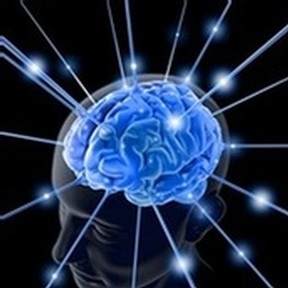Famous face recognition test could help detect rare form of dementia
American researchers say a simple famous face recognition test could help detect a rare form of dementia.

Details of ‘Naming vs knowing faces in primary progressive aphasia (PPA)’, the study carried out at Northwestern University in Chicago, were published in today’s issue of Neurology.
PPA is a specific type of frontotemporal dementia, which usually affects people under the age of 65. A typical symptom of the condition is the deterioration of language abilities, such as problems remembering the meaning of various words and difficulty getting words out.
For the study, researchers recruited 57 people – 30 with PPA and 27 without any form of dementia – with an average age of 62. They were shown pictures of 20 famous faces, including Princess Diana and Elvis Presley, and were asked to name the person in each image. Participants who were unable to name them were then asked to identify the famous person by describing them.
Results showed that those with PPA were less likely to name the famous face, with just 43 per cent successfully identifying the person in the image, compared to 93 per cent of those without dementia. Participants with PPA also scored lower when it came to recognising the people in the pictures, with 73 per cent doing so by describing them, compared to 97 per cent of those without the condition.
Further analysis with the use of an MRI scanner revealed that participants who had difficulty naming famous faces tended to have a shrinkage in the left temporal lobe, while those who had trouble recognising faces had shrinkage in both lobes, which are the areas of the brain involved with the understanding and production of language.
Commenting on the research, Dr Doug Brown, director of research and development at the Alzheimer’s Society, said: “We all forget a face from time to time, but when the ability to recognise someone as famous as Elvis or Diana becomes an issue it may be there is a deeper rooted cause. Tests like this could help identify rarer forms of dementia which might otherwise be overlooked. However, problems with facial recognition are not a symptom of all types of dementia so more research is needed to see whether adaptions of this approach could have wider use.”
Dr Marie Johnson, from Alzheimer’s Research UK echoed Dr Brown’s views. She said: “It’s important to be able to give an accurate diagnosis for people with dementia so they can gain access to the right care and treatments, but the different forms of dementia can be difficult to identify. While this test is not yet ready to be used as a widespread tool for diagnosis, this study suggests that assessments of face recognition could be useful for helping to detect PPA. These results suggest that the test used in the study could help shed light on the specific cognitive problems experienced by people with this rare form of dementia.
“One useful aspect of this research was that people’s performance on the test related to changes in specific parts of the brain. Studies such as this could increase our understanding of the way the brain is affected by different forms of dementia, but we most invest in research if results like these are to be used to move towards better diagnosis.”
Latest News
 29-Jul-24
Dementia Bus gives carehome.co.uk staff insight into life with dementia
29-Jul-24
Dementia Bus gives carehome.co.uk staff insight into life with dementia
 01-Mar-24
Find out the top care homes in 2024
01-Mar-24
Find out the top care homes in 2024
 21-Mar-23
UK's top care homes in 2023 revealed
21-Mar-23
UK's top care homes in 2023 revealed
 03-Jan-23
carehome.co.uk launches free care helpline
03-Jan-23
carehome.co.uk launches free care helpline
 13-Dec-22
5 mins with Emily Whitehurst, chief operating officer for Constantia Healthcare
13-Dec-22
5 mins with Emily Whitehurst, chief operating officer for Constantia Healthcare